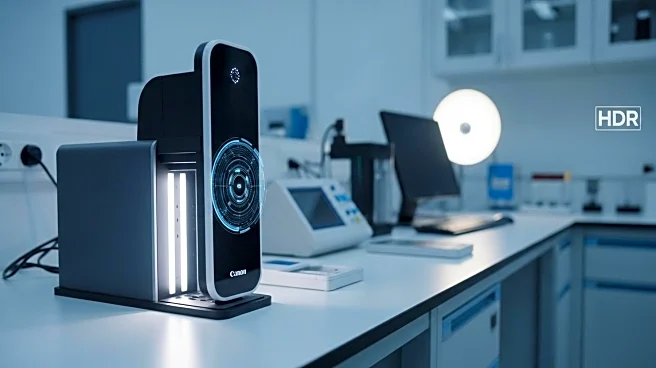What's Happening?
QIAGEN N.V., a Netherlands-based company, has received U.S. FDA clearance for its QIAstat-Dx Rise, an advanced version of its syndromic testing system. This new system is designed to meet the needs of hospitals and reference laboratories by offering highly automated syndromic testing with minimal hands-on time. The QIAstat-Dx Rise can process up to 160 samples per day, significantly increasing testing capacity. It builds on the success of the lower-throughput version and aims to expand access to infectious disease diagnostics across the U.S. The system is already available in over 100 countries, with more than 4,600 instruments placed globally. The initial launch includes respiratory panels, with plans to add gastrointestinal panels in the coming months.
Why It's Important?
The clearance of QIAstat-Dx Rise by the FDA marks a significant advancement in the field of infectious disease diagnostics. By increasing testing capacity and reducing hands-on time, the system can provide faster and more accurate diagnoses, which is crucial in settings where turnaround time is critical. This development is likely to benefit hospitals and laboratories by streamlining their workflows and improving patient care. Additionally, the expansion of QIAstat-Dx Rise in the U.S. market could enhance the country's diagnostic capabilities, potentially leading to better management of infectious diseases and improved public health outcomes.
What's Next?
QIAGEN plans to expand its QIAstat-Dx Rise system by adding gastrointestinal panels in the coming months. This expansion will further enhance the system's diagnostic capabilities, allowing it to address a broader range of syndromic testing needs. As the system gains traction in the U.S. market, it may prompt other companies to innovate and develop similar high-throughput diagnostic solutions. Stakeholders such as hospitals, laboratories, and healthcare providers are likely to monitor the system's performance and consider integrating it into their diagnostic processes.
Beyond the Headlines
The introduction of QIAstat-Dx Rise could have long-term implications for the healthcare industry, particularly in the realm of automated diagnostics. As technology continues to advance, the demand for systems that offer high throughput and minimal manual intervention is expected to grow. This trend may lead to increased investment in automation and artificial intelligence within the healthcare sector, potentially transforming how diseases are diagnosed and managed. Ethical considerations regarding data privacy and the use of automated systems in healthcare may also arise as these technologies become more prevalent.









